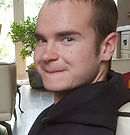
Today’s episode of The Psychology World Podcast is on Forensic Psychology and does treatment actually work for offenders.
The show notes from today’s episode comes from my book: Forensic Psychology.
Please enjoy.
In all honesty, I could easily give you the answer to this vital question but that would make this section very short.
Firstly, it must be said that general society; and this point will be expanded upon in the next chapter; has a very negative attitude when it comes to treatment and people often say:
“Of course, treatment doesn’t work”
Therefore, this attitude is important to tackle in the grand scheme of thing because if the public has a lack of faith in treatment then this could lead to political and social consequences.
For instance, politicians don’t put funding into treatment to keep the public happy. Leading to offenders not getting a high quality of treatment as a lower quality is all the prison service can afford. Making the treatment stereotype or attitude true that treatment doesn’t work.
Do harsher prison sentences work?
Personally, I MUST stress to you all that longer periods of imprisonment are not associated with a decrease in re-offending.
It all about rehabilitation.
Meaning that our politicians wouldn’t be shouted and screamed demanding harsher sentences. They should be focusing on rehabilitation as that’s what works to reduce crime.
Further support:
Hood (1996) no relationship between serious crimes and capital punishment has been found across different nations.
Yet these findings did differ by country.
Genedreau, Giggin and Cullen (1999) showed that Canada’s longer sentences actually increase re-offending slightly.
Effectiveness of treatment:
Overall, intervention and treatment are largely unsuccessful because for programmes to work, trained staff must be used and appropriate programmes must be used.
On the other hand, Redondo et al (2002) found that Community programmes have the greatest effects.
Additionally, Sex offender programmes had greater effects than programmes for other crimes such as drunk driving. Smith, Goggin & Gendreau (2007)
Duve and Goldman (2009) suggested that there’s a more or less consensus that re-offending rates are 5 to 120 points lower with treated groups compared to non-treated groups.
Consequently, this demonstrates that treatment works as offenders that got the treatment was potentially a lot less likely to offend.
However, this study does have two problems. Such as there was no random assignment to groups, and this wasn’t a true experiment. Meaning that causality is hard to state outright because as no variables were manipulated. We don’t know for certain if it was the treatment that caused the drop in re-offending rates or another factor.
Furthermore, there wasn’t a control group; as a group of untreated offenders; so this casts doubt the findings as we don’t know if the treatment worked as we cant compare the results to an untreated group of offenders.
Another study that calls the effectiveness of treatment into question is Welsh and Rocque (2014) that discussed that some interventions; such as boost camp; have an adverse effect on offenders.
Personally, I can completely understand this result because I am NOT an offender and I am what society would call a ‘good’ person, but I do not take orders and I am my own person.
Thus, if I was at a boot camp; why I would be there in the first place is beyond me, and someone was shouting orders at me. Naturally and I believe quite reasonably I would rebel, and my focus would change from trying to learn the benefits of the lesson I was being taught at the Bootcamp to rebelling.
Generally, this is what happens to offenders as well.
Overall treatment findings:
Throughout this section, we have discussed the positives of treatment, the negatives of treatment and everything to do with rehabilitation.
Therefore, in this chapter, I’ll tell you that in general, treatment which is defined in many ways tend to show a positive effect.
The mean effect across interventions is small but it includes the interventions that are weak or ineffective.
In other words, some treatment work very well, others work okay and some don’t work at all.
The most important thing to remember though is that we have found no magic bullet for treating offenders yet.
I hope that you’ve enjoyed today episode, if you want to learn more please check out my Forensic Psychology book and consider signing up for my newsletter to get your FREE psychology book.
Have a great day,
Connor.

Kommentarer